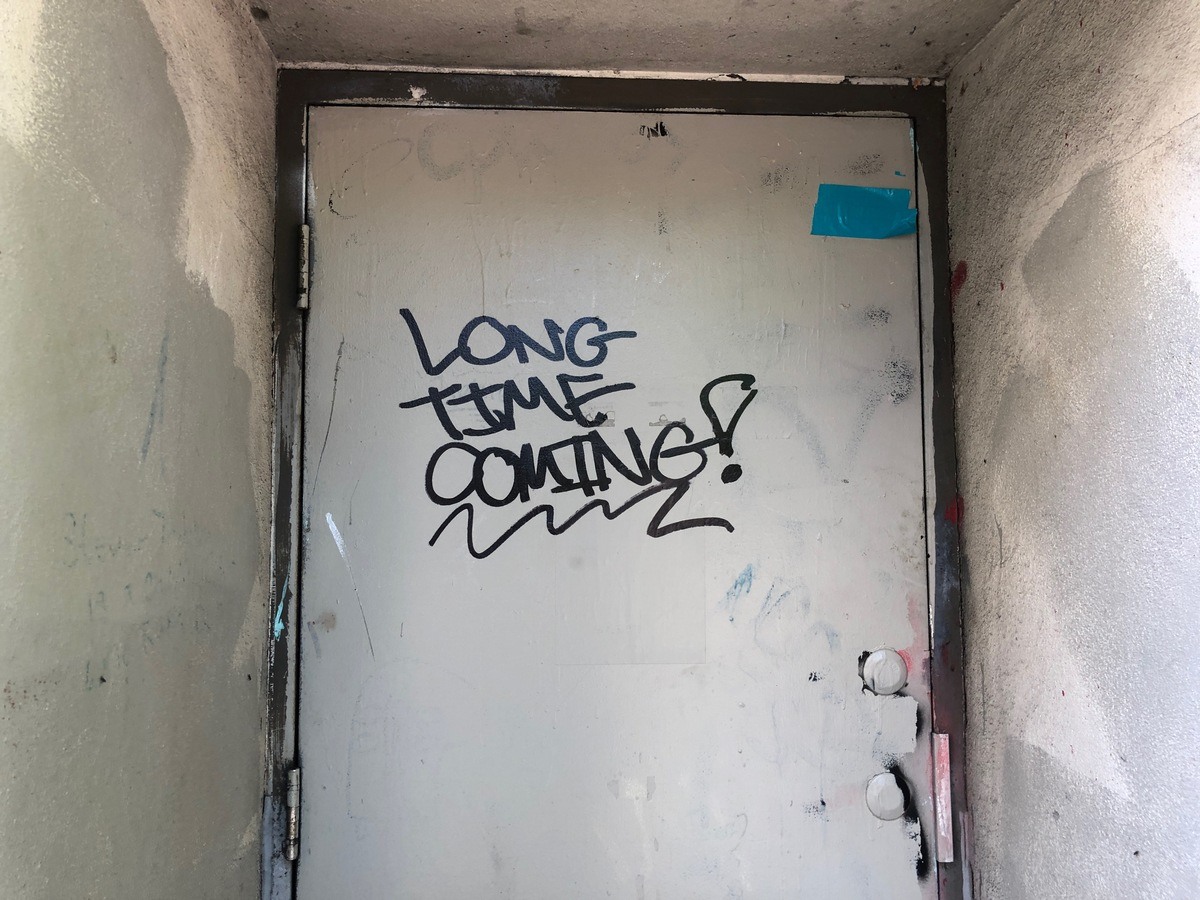
Photograph by Nathaniel St. Clair
Senate Republicans may be at a crossroad in their unwavering fealty to a bunkered racist Donald Trump as his chances of re-election appear to be dimming.
His approval rating has sagged because of increasing public dissatisfaction with his complete mishandling of the pandemic, his incendiary stance toward peaceful nationwide demonstrations for major police reform and disgust by respected generals for using the military as a political prop as if he were a dictator.
Example: The latest Washington Post-Schar School poll said 61 percent said they disapprove of Trump’s handling of the protests with 35 percent approving.
Republicans have the chance to side with the pull of the people and support sweeping legislation that would rein in police use of excessive force, forbid chokeholds, outlaw discrimination against African-Americans and ban state and local laws that protect police for misconduct.
Senate Majority Leader Mitch McConnell of Kentucky, whose grip on his chamber is as tight as a cop’s handcuff on a thief, wants a conservative alternative to the Justice in Policing Act of 2020 proposed by the Congressional Black Caucus in the House.
The legislation, years in the making, follows through on massive protests of police brutality ignited by the May 25 suffocation of George Floyd of Minneapolis, a black man held down in the street by officer Derek Chauvin’s right knee as three other officers shied from trying to save his life. Chauvin has been charged with second degree murder, the others with aiding and abetting it.
Police have killed 5,400 people since 2015, including 463 through the first week of June this year alone, The Washington Post reported. Nearly half of the total fatalities were white, it said.
The GOP has been the party of law and order since the days of President Richard M. Nixon, who struggled against overwhelming raucous anti-Vietnam War demonstrations during the late 1960s and early ‘70s. But now Republicans are challenged by a president who demanded protesters be cleared near the White House so he could cross a park and pose with a Bible in front of a church after he, his wife and teen son emerged from a bunker. That generated more protests favoring Black Lives Matter.
If progress is to be made ending racial profiling, resolving pernicious injustices against equality going back centuries, much will need to change among the white power structure even as the population inexorably shifts to a non-white majority. The mainstream media already has come out blatantly accusing Republicans of a racist bias.
“They (Democrats) should be rushing to engage this battle, for as the nation grapples with George Floyd’s killing and what to do about persistent police brutality, this much has become clear: There is structural racism in the Republican Party,” wrote Washington Post columnist Dana Milbank June 9.
The Urban Institute’s definition of structural racism: “Throughout this country’s history, the hallmarks of American democracy – opportunity, freedom, and prosperity – have been largely reserved for white people through the intentional exclusion and oppression of people of color.”
Congressional Republicans whose publicly uncritical backing of a wayward president should be aware that many white voters have seized the day and empathize with the Black Lives Matter movement. They have marched with African-Americans to demand changes in the way police confront the black minority, which is about 13 percent of the population.
Eleanor Holmes Norton, who is Washington, D.C.’s representative in Congress, readily took note of white support for BLM. “So many white people have taken this to heart,” The New York Times quoted her.
The winds of change may be blowing so strong that racist remarks from Trump such as his denigration of Mexicans when he ran for president in 2015 no longer may be acceptable. What his “America First” campaign slogan really means is whites first.
Severe inequality in America, first widely recognized by the disparate impact of the coronavirus pandemic on black communities then again more viciously by the Floyd killing and the demonstrations that followed in about 700 cities, starkly illustrated what anyone with a sense of decency has known for a very long time: whites have lived with and encouraged insidious racism.
“I’m here,” Floyd’s younger brother, Philonise, told the House Judiciary Committee June 10, “to ask you to make it stop.”
It won’t be easy.
Racism has been built into this country since 20 black slaves arrived in the Pilgrim colony of Jamestown, Virginia, in 1619, 157 years before the Declaration of Independence served notice that it was “self-evident” that all men are created equal. It was written principally by slave owner Thomas Jefferson, our third president.
Words on parchment, no action required to enforce what surely is self-evident.
Racism still is alive like a virus in a good part of the white world’s DNA despite the 13th Amendment to the Constitution that abolished slavery in 1865. Here’s an example from The Texas Tribune of June 6:
The Austin-based media organization said that on June 5 “five GOP county chairs were facing backlash for sharing racist social posts.” It identified seven other chairs who shared similar sentiment. It said some of the chairs of Texas’ biggest counties suggested Floyd’s death “was staged to erode black support” for Trump. Typical rightwing conspiratorial crap.
But if this diverse and polarized country of “we the people” can come together to endorse same-sex marriage and tolerate a gay mayor running for president, it can resolve the bitter divisions embedded in racism.